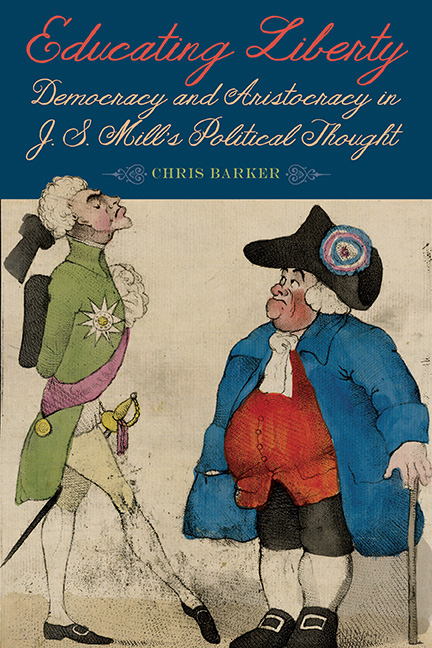Introduction: An Educated Life
Published online by Cambridge University Press: 24 July 2019
Summary
This book offers a new interpretation of Mill's social and political thought. As I argue below, Mill wants above all to educate society. But through the experience of reading and debating with less moderate authors, he learns that education is a power, and that educative power cannot be permitted to direct society at the expense of individual agency. Since it is the case that the power of traditional authority and the “unspeakable” power of education are so great, education must be done without “principling” students and without requiring them to think “by deputy,” or the power of education becomes the power of custom and tradition. Educating without imposing first principles is the best way to increase aggregate mental power. This insight is at the heart of Mill's theory of civic education.
Across all his writings, and in part because of the special circumstances of his own indoctrination as a Benthamic Utilitarian, Mill limits educative power only to as much power as is consistent with “individuality of power and development,” which in turn is justified as a “necessary part and condition” of “civilization, instruction, education, [and] culture.” A reasonable education in morality, not militantly secular or theologically voluntarist; instruction in independent thinking, beginning with a basic education in reading, writing, and arithmetic, and culminating in a social scientific and dialectical toolbox for adult citizens; a civil religion that is not a “political” religion; a political education emphasizing the importance of participation, and in particular the importance of voting well—all these are elements of Mill's theory of public instruction and enlightenment.
According to Mill, every society needs something “permanent, and not to be called into question; something which, by general agreement, has a right to be where it is.” This is the constitutional ethos, or piety, of a society. Challenging custom may seem like an impractical and quixotic task, but change as Mill understands it is already within reach. The remedy for many political errors is to change majority opinion, not to seize power through minorities and exert influence and make decisions in that way. One changes majorities by educating them, and one educates majorities by changing their experience of power, both as they wield it and as it is exerted on them.
- Type
- Chapter
- Information
- Educating LibertyDemocracy and Aristocracy in J. S. Mill's Political Thought, pp. 1 - 15Publisher: Boydell & BrewerPrint publication year: 2018



